Written by Scott Wilson
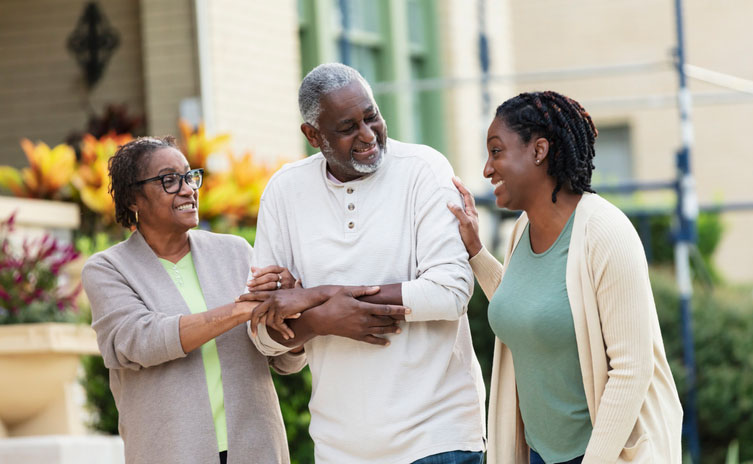
Dealing with marginalized and disadvantaged populations is really what you are signing up for when becoming a social worker. Your job, after all, is to take those individuals, worthy of respect and assistance, and draw them out of the margins.
No one, however, expects you to do all that alone.
The strength of the social worker is the strength of society itself to do the right thing.
One of the most important things you‘ll learn along the way as you build your social work education in Florida is about the broader team around you. You‘re becoming part of a legacy of social justice warriors and caring providers who reach out to disadvantaged groups and get them the resources they need for healthy, meaningful lives.
As you do, you’ll find that there is no need to reinvent the wheel. Generations of social workers before you, and your peers today, have put together many resources to help you improve the lives of clients in specific marginalized populations in Florida. No matter what your niche in social work practice, check back here first to find some shortcuts to better and faster help for the people who need it most.
Resources for Florida Social Workers Providing Support to Black, Indigenous, and People of Color (BIPOC)
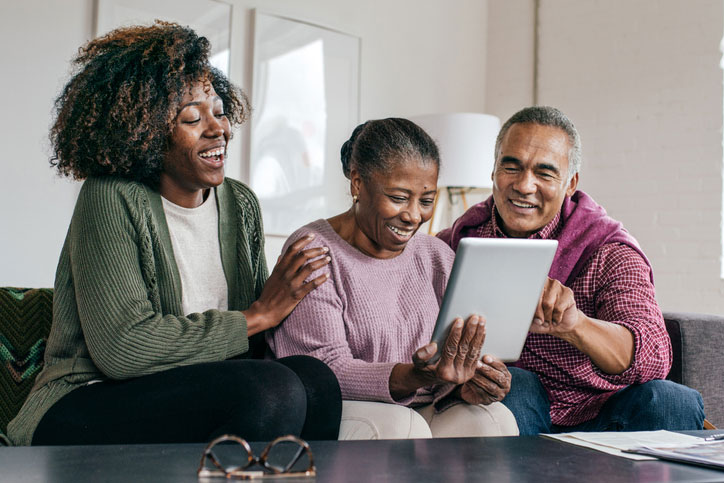
Florida is almost half BIPOC according to U.S. Census data from 2022. Despite that, the state has incurred quite a reputation for neglecting this vibrant and sizable population. In 2023, in fact, the NAACP went so far as to issue a travel advisory for people of color putting out a notification that the state is openly hostile to their interests.
Be that as it may, social workers here understand that this isn’t just a group or community in Florida. The BIPOC population is Florida, and the proud culture and heritage that’s been thriving here for generations isn’t going anywhere.
If you are fighting for the interests of Floridians in underserved and underrepresented communities anywhere in Florida, then you most certainly are working with Black, Indigenous, and People of Color. That means virtually any social worker in Florida will find these organizations and resources helpful in supporting human services work.
SFPOC aims to bridge gaps across racial, ethnic, and cultural divides to bring a sense of community to South Florida through cultural events. Juneteenth celebrations, coming out parades, music festivals, presentations, and annual dinners and banquets honoring BIPOC citizens help build awareness and foster ties between the communities of color in Florida and other residents.
Foundation for a Healthy St. Petersburg – BIPOC Young People Leadership Initiative
A transformative program aimed at younger BIPOC residents in the St. Petersburg area, the Young People Leadership Initiative helps connect them with opportunities to build community, establish themselves in business, and accelerate racial equity. A Young People Summit also draws them together and exposes them to existing community leaders to accelerate racial and social justice movements in Florida.
The Center for Black Innovation is a think tank and innovation ecosystem building organization that cultivates outside-the-box thinking and advances from within Florida’s Black community. With assistance in business development and general support for economic and social mobility, this resource may be what your ambitious clients with dreams and energy need to start building.
Through organization, education, and leadership, this group is cultivating a community of working-class women who can be transformative in both tenant and worker rights. The twin prongs of housing and labor are crucial for many women of color, and MWC combines those needs into driven advocacy that makes a real difference on the ground.
100 Black Men of South Florida
Role models, mentors, and contributors to the BIPOC community, from within the BIPOC community, often form the strongest resources and support networks available. While many social workers fit that description, not all do, which is where 100 Black Men of South Florida can help. Assisting in health and wellness, youth development, and education efforts, they can give a boost to your mission to assist BIPOC clients.
Resources for Florida Social Workers Assisting Lesbian, Gay, Bisexual, Transgender, Questioning, Intersex, Asexual, and Two-Spirit Individuals
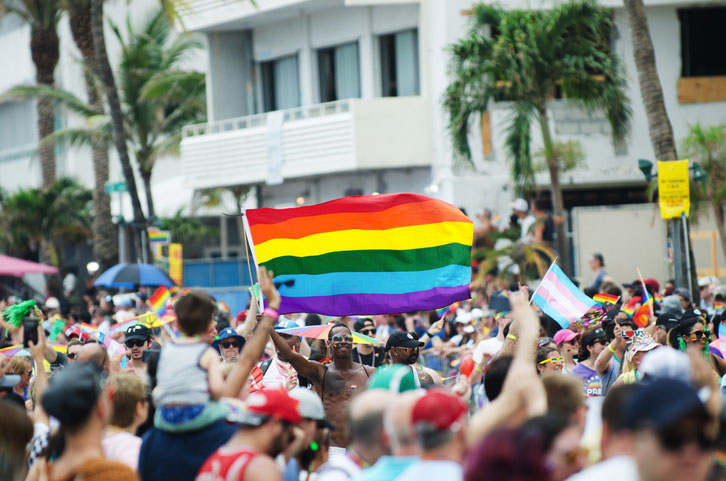
Florida has always been home to people along the LGBTQIA+ spectrum. Yet being out and proud here doesn‘t automatically mean acceptance and equity from the rest of society. If anything, the state has regressed in terms of LGBTQIA+ rights in recent years.
That makes it more important than ever for social workers to fight for members of this marginalized population. According to estimates from Gallup and other surveys, almost a quarter of people who identify as LGBTQIA+ in Florida have kids, yet nondiscrimination laws and other protections are virtually non-existent here, and these parents struggle to have their voices heard.
These resources help hand you some of the tools you need to be a staunch advocate and a caring ally for your LGBTQIA+ clients.
Equality Florida is a great place to get started with positive action for LGBTQIA+ advocacy in the Sunshine State. It’s the largest organization in the state committed to equality for the community, through lobbying, grassroots organization, education, and coalition building. If there is anyone looking out for your LGBTQIA+ clients’ right and wellness, it’s the more than 300,000 supporters and 1,000 volunteers working here.
Offering mental health and care coordination to LGBTQIA+ youth and their families, this organization affirms and supports gender identity and sexual orientation. They offer in-person and telehealth services for kids and their families including direct counseling and community trainings.
SunServe focuses on the most vulnerable members of the LGBTQIA+ community: youth, substance use disorder patients, women, transgender individuals, the unhoused, and those with mental health disorders. It’s a veritable rainbow of useful services for social workers in the South Florida area to tap into for clients.
The Pride Center at Equality Park
Another South Florida centerpiece of the LGBTQIA+ community is the Pride Center. It’s a community as much as a place, offering information and support for health and wellness, education, and emotional support.
The mission of The Center is to promote and empower the LGBTQIA+ community and individuals in the Orlando area. With programs aimed at youth, seniors, Latinos, and transgender individuals, and immigrants they cover the spectrum of assistance options no matter how your client identifies.
Pride Community Center of North Central Florida
PCCNCF is the North Florida answer for an LGBTQIA+ safe space in a state that increasingly feels unsafe for this community. Hosting the Gainseville Area Aids Project as well as resources for other marginalized folks, you can find a welcome mat here for queer clients with all kinds of needs.
Resources for Social Workers Assisting Immigrants and English Language Learners in Florida
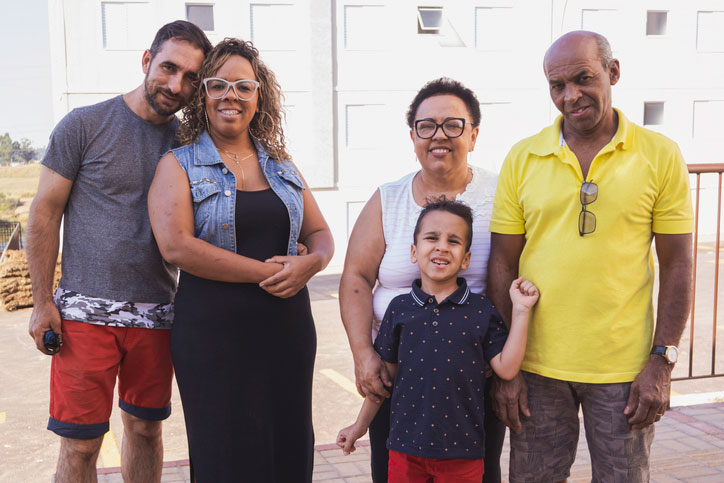
In a state where only 70 percent of the population regularly speaks English at home according to 2022 U.S. Census data, language acquisition can be a big deal.
According to the American Immigration Council, more than one in five Florida residents is an immigrant. One in eight are U.S. citizens who nonetheless have at least one immigrant parent. And while half of immigrants living in Florida are naturalized citizens, around 775,000 are undocumented. That includes some 24,000 DACA (Deferred Action for Childhood Arrivals) recipients, who were brought to these shores as young children with no choice in the matter and often no family to return to should they be deported.
These are important matters for social workers in Florida, and you can use every bit of help you can find to take on the challenges of serving this population. These resources will help get you started.
Front and center in the movement for immigrant rights is FLIC. Offering free assistance to legal permanent residents seeking citizenship, including fee waivers, FLIC can help your clients get over that last hurdle to becoming an American citizen. They also offer free clinics on temporary protected status, with a hotline number to call for immediate advice. FLIC also provides a grab-bag of other services, like assistance in renewing employment authorizations, obtaining in-state tuition at public universities regardless of documentation status, and driving for voter registration for new residents.
Florida Department of Children and Families Refugee Services
DCF operates a federally-funded program to help refugees in the state achieve economic self-sufficiency and adjust to their new home as quickly as possible after they land in the state. It’s the largest refugee program in the country, assisting more than 5,000 refugees and asylum seekers annually.
Northeast Florida Immigrant Resource Alliance
NEFIRA offers local help for social workers and immigrants in the Jacksonville and Northeast Florida community through informational resources and assistance in obtaining community services. That includes access to financial counseling, ESOL educational courses, and resources for obtaining day care and transportation services.
NicerFL – Immigrant Education Services & Resources
It’s nice for both immigrants and the social workers helping them that this group uses volunteer teams to integrate life skills and acculturation practice with language-level appropriate English instruction. With four locations in Pinellas, Hillsborough, and Sarasota counties, as well as online English training, there’s a wide range of territory that is covered. Everyone from the elderly to college-age immigrants can get a fresh start in a new country in the nicest possible way.
Florida Department of Health – Refugee Health Program
Healthcare can be a challenge even for well-established and supported Americans. For refugees unfamiliar with the system, without funding, without insurance, it’s often a vital service that they simply go without. But the state’s Refugee Health Program can give social workers a hand by providing review of overseas medical examinations, conducting health assessments, and delivering needed immunizations to new arrivals.
Resources for Social Workers Helping Criminal Defendants and Released Prisoners in Florida
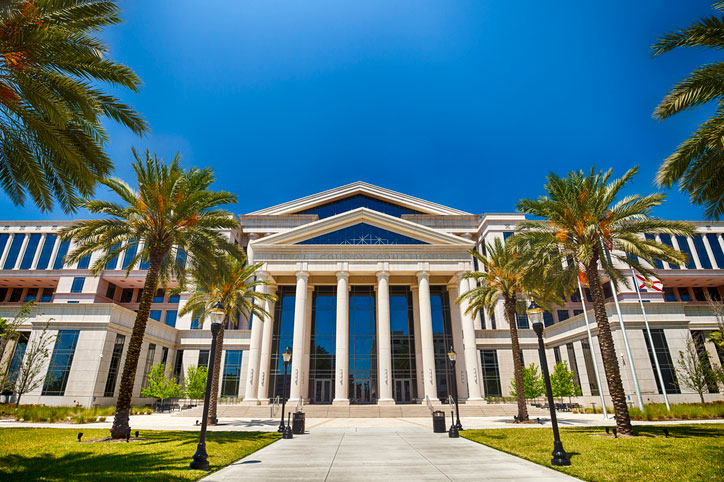
Florida has a reputation for being tough on crime. Unfortunately, that also means it is tough on prisoners and their families. The state incarceration rate is above the national average, and around 17 percent of inmates are receiving ongoing treatment for various mental health issues.
The Miami Herald even dedicates a section of the paper to reporting prisoner abuse and neglect.
Since it can be hard to even connect and communicate with clients in prison, let alone get them the kind of services they need, these resources may be invaluable to social workers specializing in forensic social work in Florida.
Florida Department of Corrections Re-Entry Resource Directory
Perhaps surprisingly for many social workers, Florida DOC itself offers one of the most comprehensive resource directories for getting assistance for clients recently discharged. Categorized by service type, county, city, and circuit court jurisdiction, you can find support in helping people who are transitioning back to life outside the institutions that have been holding them for years.
Beyond the Bars helps social workers and their clients on probation or in prison work programs fight for better working conditions. With organization, education, and advocacy, the non-profit aims to build a movement for safer, more just working environments for prisoners and former prisoners.
This innovative program that brings educational and skill-building courses in written communication to prisoners helps unlock the humanity and the potential in a neglected population. With high-quality, college-level writing courses offered at six different correctional institutions in the state, chances are if you have a client on the inside, E4C has something to offer them.
The Community Hotline for Incarcerated People
CHIP South Florida provides support, resources, and advocacy for individuals incarcerated in South Florida jails. Their hotline is staffed by volunteers who collect information and point inmates to resources, but the real work happens collating and disseminating the data on actual conditions inside in an effort to lobby for systemic change.
Sometimes the real challenge for social workers who specialize in criminal justice is simply figuring out where their client has ended up. The patchwork of federal, state, and local jails can make it tough to track down where inmates are being held. You can find assistance from an unusual source through the Department of State Division of Library and Information Services, which has compiled a list of links to county and state corrections inmate lists.
Resources for Florida Social Workers Assisting Unhoused Individuals and Families
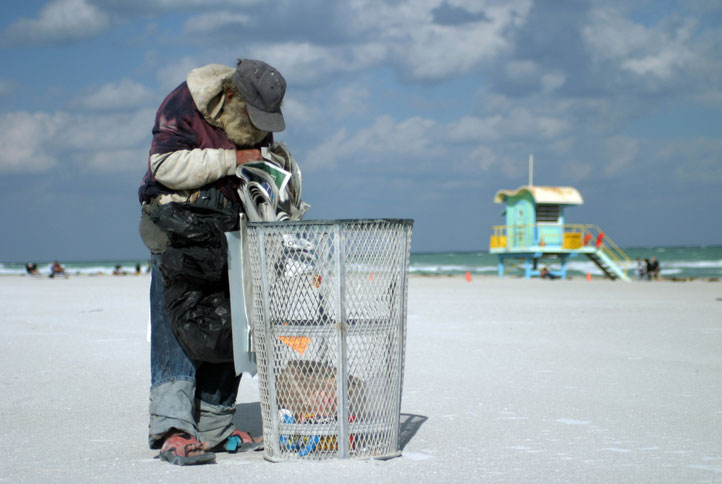
The Florida Coalition to End Homelessness estimates that on any given night, more than 31,000 Floridians spend the night unhoused somewhere in the state. Almost 5,000 of those are children; over 8,000 are senior citizens.
While society all too often looks past the uncomfortable reality of homelessness, finding it too painful to confront the human toll, social workers see the diversity and individual tragedy in every single case. From job loss and personal trauma, to mental illness and substance use disorder, there are many ways people lose their hold on stable housing and end up having to make their way out on the streets. And ending up there is a path to a whole mess of other issues that compound the problem.
But just like there are dozens of ways to end up on the street, there are dozens of ways back to shelter and stable housing. These resources help social workers connect their clients with those paths back to security.
Aimed at providing safe housing for adult women who have survived the horrors of human trafficking, this is an unfortunately much needed resource for social workers in Florida. With the state ranked third in the nation for human trafficking, odds are good your work on the street will bring you into contact with women who need a safe space to recover. If you’re in the Orlando area, this could be it.
Neighborhood Housing Services of South Florida
Addressing both generational wealth-building and homelessness through education and empowerment, NHSSF can help your clients with one-on-one counseling, first-time homebuyer assistance, and general education on the home buying and ownership process.
Homeless Services Network of Central Florida
Putting more than 3,200 people in permanent housing in Osceola, Seminole, and Orange counties per year, HSNCFL uses a housing-first approach that is making a real dent in the crisis of the unhoused in Central Florida. Focusing first on veterans, youth, families with children, and domestic violence and trafficking victims, your clients may find a home here when they need it most.
Coalition for the Homeless of Central Florida
Coalition for the Homeless serves the same general area as HSNCFL but offers a wide range of services from hygiene and clothing to meals for those stuck on the streets. While they also pursue permanent housing solutions, you may find resources that meet more immediate needs here, too.
The Chapman Partnership runs two homeless assistance centers, one each in Miami and Homestead. Taking in some 800 people a night, they are the primary intake funnel for the Miami-Dade homeless continuum of care. With fully equipped medical and dental clinics, cafeterias, classrooms, and recreation facilities and even a dog kennel for pets, these resources can help your clients stuck on the streets deal with both basic needs and restore a sense of normalcy. The partnership conducts workforce development and rapid rehousing solutions, with an 80 percent success rate for outplacements.
Serving as the lead agency for the continuum of care in Escambia and Santa Rosa counties, Opening Doors is a vital resource for social workers in the Panhandle. They offer guidance to assistance for individuals who are fleeing domestic violence, already in emergency shelters or on the street, as well as those facing eviction with nowhere to go.
Resources for Social Workers Helping Marginalized Youth, Children, and Adolescents in Florida
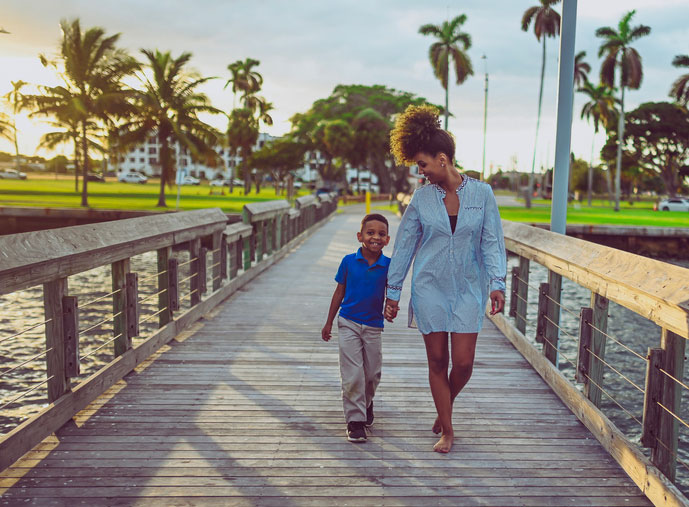
Children of any ethnic or socioeconomic background are vulnerable by definition, and a major role of social work is to guard their interests and lift them up to reach their full potential in life.
It’s a delicate area of practice but among the most important. Social workers throughout Florida will welcome access to these resource for keeping their youngest clients fed, clothed, educated — and even just entertained and out of trouble for a chance to relax and enjoy being a kid for a few hours a day.
Focused on families in the Broward and Miami-Dade areas, BSI offers educational services and resources. Their innovative approach combines training for parents with food and school supply resources to ensure a safe and healthy learning environment is available to every kid in the community.
CMB Visions offers support for working parents and single-parent families by providing high-quality after-school care and general family services in Miami and Pensacola. If you have a client that struggles with the costs of child care and just needs safe and reliable services to help make ends meet, this may be the answer.
Social workers specializing in children, youth, and families understand that the biggest risks for many kids come when they are aging out of the foster care system. Going from a controlled environment with rules and supports to the freedom and chaos of the outside world sees a lot of young adults spinning out. But GHH offers a program to promote hope, healing, and purpose-driven independence for kids about to begin their journey into adulthood in the Miami-Dade area.
Florida Youth Conservation Centers Network
FYCCN ties together community centers, parks, camps, clubs, museums, zoos, and more to offer spaces where kids from Florida’s cities can build connections to the state’s outdoor heritage and build conservation principles for future generations. With summer camps near Tampa, Tallahassee, Ocala, and West Palm Beach, social workers have a new resource for getting at-risk kids off the streets and into the countryside.
MAC works to ensure that every child from a family that works in agriculture has access to a quality education, exposure to the arts, and access to the basic technology they need to learn and begin building toward future success. With scholarship, family empowerment, and college prep programs, this organization comes at the problem from all angles, and offers child and youth social workers a range of tools for kids in families that work in agriculture.
Many new social workers are surprised at how mundane some basic unmet needs are for marginalized youth and families. One of those is something that has become very expensive in recent years but that most of us still take for granted: diapers. Ineligible for SNAP assistance, low-income families have to come up with money for this expensive—but vital—resource out of pocket. That is, until you hook them up with the Miami Diaper Bank.
Social Services Resources to Serve the Needs of Almost Any Sort of Marginalized Population in Florida
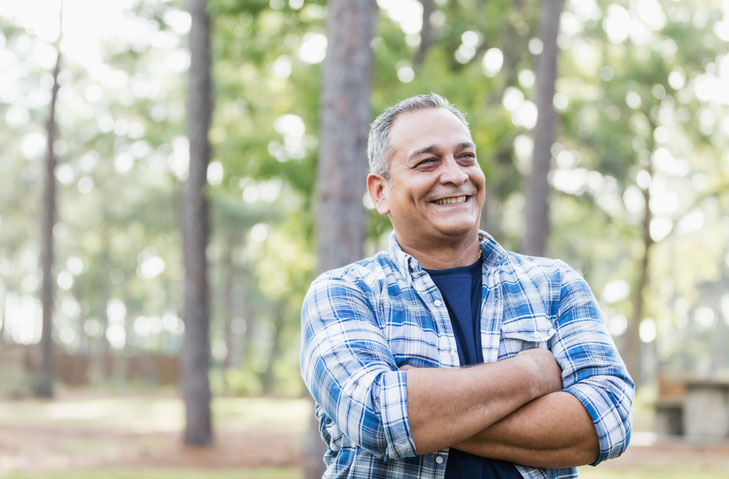
While there are some resources that are clearly aimed at the very specific needs of certain marginalized populations, it’s also the case that there are many common needs across marginalized groups. So you will also find some resources that can be equally useful no matter what disadvantaged group you are dealing with.
Minority Health | Florida Department of Health
The state itself is committed to assisting minority groups with obtaining health care and reducing racial disparities in the health system. The Office of Minority Health publishes material in Spanish and English advertising a range of free and low-cost health services available throughout the state. It also administers a Closing the Gap grant designed to reduce racial and ethnic care disparities… social workers will have some pretty good ideas about organizations that might benefit from those funds.
This non-profit has a more general mission to uplift and strengthen neighborhoods throughout the Orlando area to allow people of all colors, economic backgrounds, and beliefs to thrive together. They offer holistic investment in workplaces, learning organizations, and health and wellness facilities and programs to give communities what they need to experience safe, meaningful lives. It’s a great resource for social workers in the Orlando area and an inspiration for those elsewhere in the state.
With a range of different grant programs for community non-profits, scholarship opportunities, and many networking opportunities offering connections to movers and shakers in the Greater Miami area who want to do good things, the Miami Foundation can be one-stop-shopping for social workers in South Florida who have great things to accomplish.
Social Workers Themselves Are the Ultimate Resource for Floridians in Need
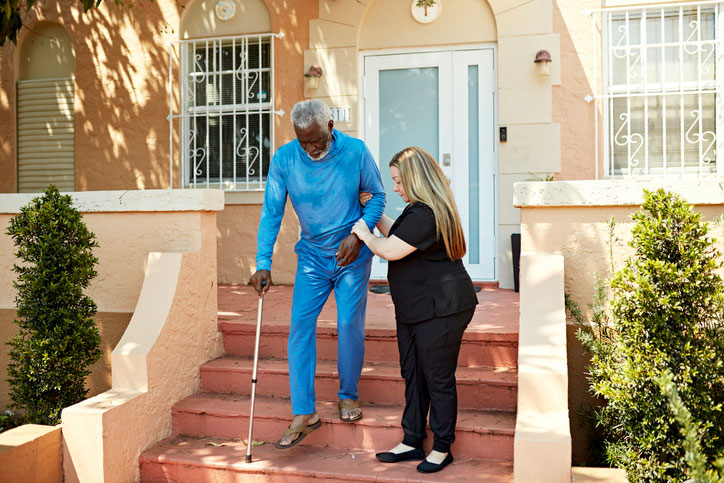
You may become so used to turning to these great sources of assistance for your clients and communities that you forget the most important resource: you.
After all, the longest list of links in the world is no good to anyone without a critical, experienced eye that understands which resource is the best fit in any particular situation. Your own training, through extensive coursework and boots-on-the-ground experience, will help you make the right choices here for the specific needs your clients face.
This is only one set of tools among many that you will draw on every day as a Florida social worker. Never forget that it’s the person using the tools that is the most important part of the solution.
